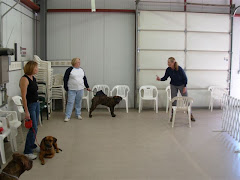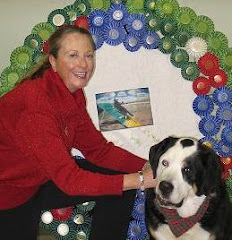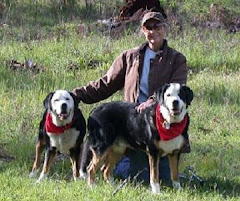
So you think your dog has what it takes to be a "therapy dog." You've heard there's a need for dogs who can visit nursing homes and children's hospitals, and for dogs who can provide comfort for people in crisis situations. But how do you get started in this type of volunteer work?
First, assess your dog as honestly and objectively as possible. Is your dog quiet-natured? Polite and respectful? Sociable? Obedience-trained? Clean and portable? Does your dog like meeting strangers? Could he pass the American Kennel Club's Canine Good Citizen (CGC) Test with flying colors?
Now, do YOU have the time to commit to regular visits at a convalescent home or other facility? Do you have the energy? The transportation? The fortitude? The genuine interest in brightening someone's spirits and in contributing to your community?
If you can answer yes to the above questions, you and your dog might be very well suited for therapy work. Now what?
Go to www.tdi-dog.org. Therapy Dogs International is an organization formed in the 1970s. TDI sanctions therapy dog venues and offers a certification program for dogs. To be certified by TDI, the dog must pass an AKC Canine Good Citizen test with additional provisions geared toward hospital settings. TDI also requires a $10 registration fee for dogs who pass the test. With the fee comes insurance that covers you and your dog when you're doing your therapy visits.
There are other sanctioning organizations besides TDI, but it's reportedly the oldest. Technically you and your dog don't need to be "certified" by any organization to visit most nursing homes, retirement homes, or even settings involving children. You simply have to KNOW YOUR DOG. You--not an evaluator--are the only one who TRULY knows your dog's temperamental strong points and shortcomings, and you MUST be objective!
If you know, beyond a shadow of a doubt, that your dog is sweet as sugar through and through, controllable in chaotic circumstances, and affection-seeking as well as affection-giving, simply call your local nursing home or convalescent ceter and offer your services. You'll usually speak with the activities director, who may want to meet your dog in person before scheduling your visits on a weekly basis.
While having your dog "certified" is not necessary, it's a good idea. All sorts of "certifications" these days can be purchased and downloaded; nonetheless, connecting with an organization like TDI can open doors to opportunities for your services. Networking with other therapy dog teams can offer plenty of moral support and suggestions for how you and your dog can better serve your community. And, once again, there's that issue of insurance.
Little dogs are popular in therapy work because they're portable and less intimidating than big dogs. However, there's something about having a BIG Doberman or Rottweiler stroll into a hospital room that scores BIG points with patients! Just ask Eileen Michals of the Tri-Cities. Her Dobies, Shreq and Anonymous, have won national awards for their community service!
If you don't go for "certification," at least have your dog pass the AKC Canine Good Citizen Test. It's a simple manners test that any "good" dog should be able to pass, and it will be credible evidence that you and your dog have accomplished the first steps toward therapy work.


















No comments:
Post a Comment